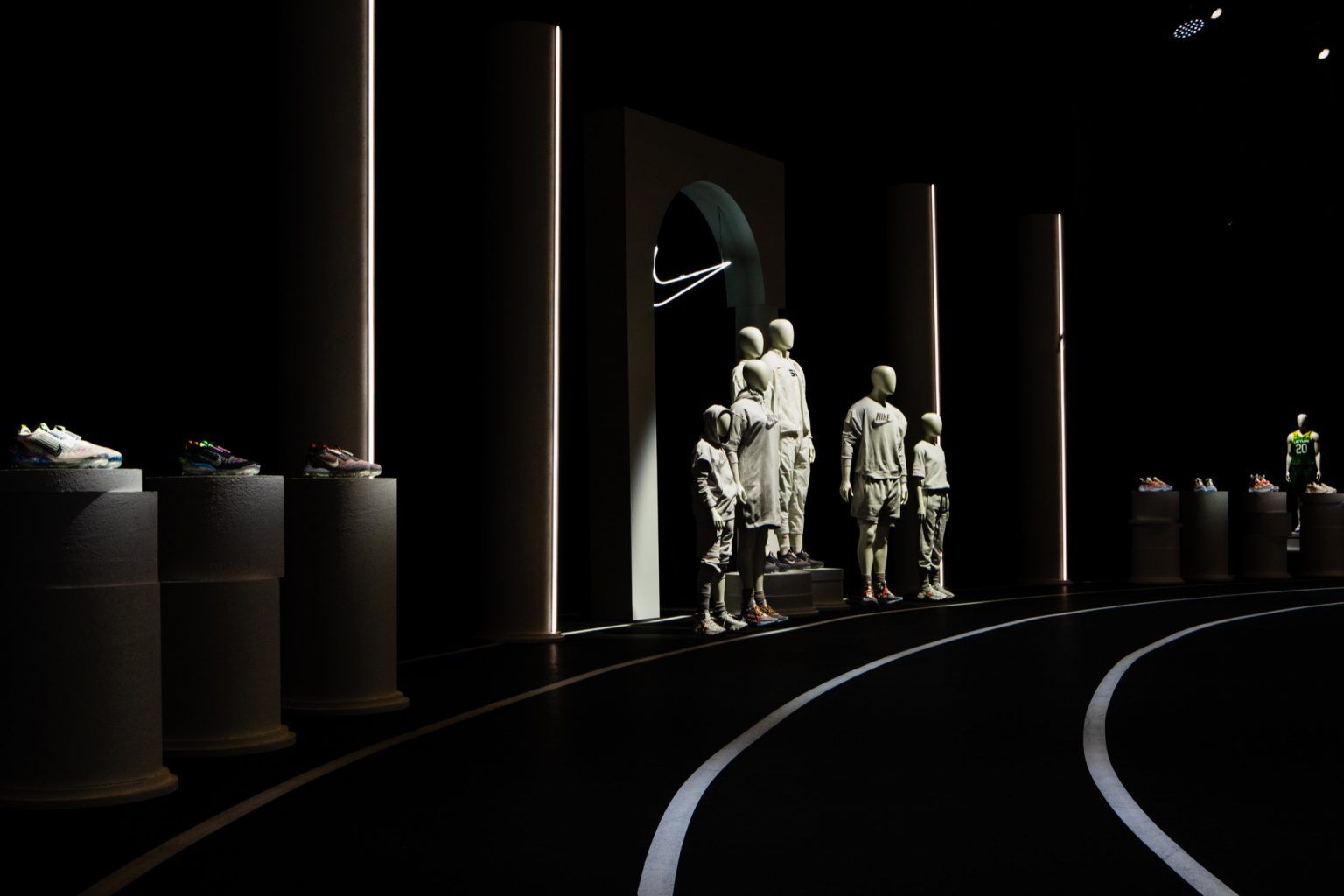2017: 2:03:32, 2018: 2:01:39. We Salute Marathon World Record Breaker ELIUD KIPCHOGE
|Thom Bettridge
In 490BCE, the first ever marathon was run by the messenger Pheidippides, who upon arriving in Athens to announce Greek victory at The Battle of Marathon, collapsed and perished. Ever since, the marathon has been regarded as an athletic feat that rests at the edge of what’s humanly possible, one that requires not only physical but mental stamina. This crucible of endurance is the wheelhouse of Kenyan long-distance runner ELIUD KIPCHOGE, the most successful marathon runner on Earth, who on September 16, 2018 surpassed the existing world record by more than a minute at 2 hours, 1 minute, and 39 seconds. It wasn’t his first victory in Berlin. He spoke to Virgil Abloh in the summer of 2017:

With a time of 2:03:32, Kipchoge’s 2017 run was dampened slightly by the rain and came up just 35 seconds shy of Dennis Kimetto’s world marathon record. Early the same year, Kipchoge shattered this record by two minutes in an unofficial setting (on a Formula One track in Italy) for Nike’s moonshot project Breaking2, a feat that required him to rest for an entire month afterward. The Zoom Vaporfly shoes in which Kipchoge won the race were designed specifically by Nike on the occasion of Breaking 2. These shoes were then deconstructed by Off-White designer Virgil Abloh for his “The Ten” series of remixed Nike classics. “I want to call out this whole idea of innovation,” Abloh said about taking on the Zoom Vaporfly, “The fact that it’s for a runner is inspiring.”
After getting word of Kipchoge’s winning Berlin Marathon run, Abloh flew in from Paris to congratulate the runner and speak with him about stamina and innovation in a conversation hosted by 032c. In Abloh’s interview for 032c Issue 32, he describes streetwear as an inherently “open source” phenomenon in which anyone with a screen-printer and an internet connection has the tools to become a designer. Running is the ultimate open source sport, one that requires only a good pair of shoes and the stamina to push beyond the limits of what seems possible. 032c’s Thom Bettridge spoke with Abloh and Kipchoge about both of those things:
Virgil, you’ve spoken about streetwear as being an “Open Source” design ethos, something that you’ve been putting into practice through your workshops in New York and London. This democratic idea is something that sits at the core to running. Eliud, how do you go about passing your knowledge of this sport to others?
Kipchoge: My running group is over 50 —sometimes it’s 60, even 80 — so personally I inspire the youth. I inspire those who want to run as a profession. And I inspire my teammates to aim high and never look back. In a sport, anything can happen. It can break your heart. But if you accept the outcome, then that’s the best way to enjoy sport. If you don’t accept the outcome, you can’t enjoy it. I’m talking to students everywhere in Kenya, trying to talk to them about jogging, or walking, or swimming for 30 minutes each day. Because the most important part of the body is the heart. And the heart is a muscle that you cannot make strong when you sit.
Abloh: I think both sport and design are projects rooted in a human quality. I have similar dialogues with kids who have a passion for design, and I think it’s part of this new generation of sharing. I also think of the brain as a muscle. Creative problem-solving is an exercise — you can’t simply be noncreative for three months and then sit in a brainstorm session trying to merge ideas. Like any profession or passion, it takes a number of skill sets.

Stamina is a central skill to running. How do you get through moments when you feel like you’re completely out of energy? What do you tell yourself?
Kipchoge: I try to really concentrate on just making an even pace, which can get me through the whole marathon, especially the last two kilometers. I say to myself what my trainers have been telling me for the last four months, and I put my trust in what they’ve put me through.
Abloh: With stamina, there’s a part of your brain that just wants to shut off. You know when it wants to, and when you reach that sort of peak, you realize how much your mind can control what your body has a capacity to do. You have to just stare at it, and if you hold that sort of attention, you realize it falls away. Because that barrier can’t withstand time. Unless you give up — and he doesn’t give up, and I don’t up. It’s not in the vocabulary.
A lot of running is about pace. How do you keep yourself from going too fast?
Kipchoge: I just make sure to relax and run free. You control your mind, and then your mind can control your body. The mind is the driver of everything.

And fashion has its own sense of pacing as well. Sometimes ideas happen before their time, they’re too fast and they fizzle away.
Abloh: Just like your body could be sent into shock by running too fast too soon, the same happens in the creative space. Debuting an idea is something that needs to happen for you to add the second idea. Then the culture can catch up and digest. A good designer is someone who is not only progressively thinking, but someone who can release new premises that build into a legacy. That pace is what gets you to the end. And people only watch the end of the race.
Kipchoge: This race in particular was actually a bit of pressure. All the big marathoners were there. But I wanted to get rid of the pressure and really concentrate on the race. If you can consume pressure then the pressure cannot consume you. Last evening was the hardest part, because you think, “What will happen tomorrow.” Everyone wants to run the fastest, so what can I do? So I meditate and do what I’ve been doing for four months of training.
Does it help you to know there are other fast runners in the race?
It’s good. And then when you win, people don’t say, “If I would have been there…” It’s good for all of us to be here. You share ideas. You compete inside the course. And, after the finish, you shake hands and life continues.

Credits
- Text: Thom Bettridge
- Photography: Christian Werner


